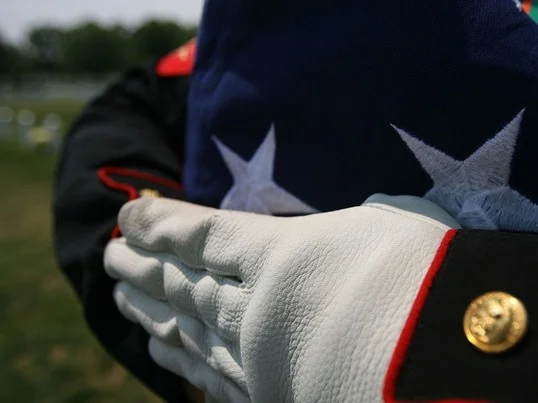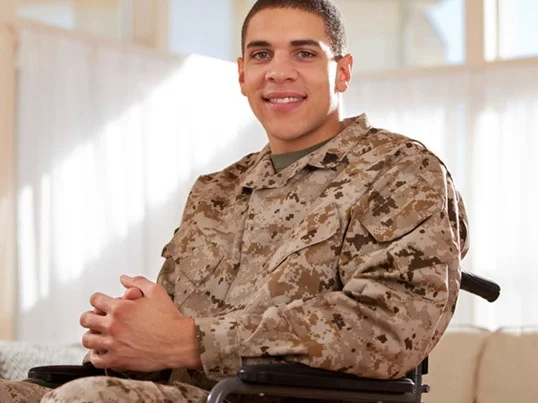How to Appeal a VA Benefits Denial
Veterans are the backbone of our nation’s freedom, and it’s crucial that they receive the support they rightfully deserve. In South Portland, Maine, just like in many other parts of the country, veterans rely on VA benefits to address their medical needs, disabilities, and other essential services. However, there are unfortunate instances when a veteran’s VA benefits claim may be denied, leaving them frustrated and uncertain about their future.
It’s important to remember that a denial does not have to be the end of the road for veterans. There are specific steps and procedures to appeal a VA benefits denial, allowing veterans to fight for the benefits they rightly deserve. By understanding the options available and gathering the necessary documentation, veterans can present a compelling case and potentially overturn the initial denial, paving the way for the support they need.
So, how can veterans in South Portland, Maine appeal a VA benefits denial? Let’s explore the process and gain valuable information to help veterans navigate the appeals process successfully.
What is a VA Benefits Denial?
A VA benefits denial refers to the decision made by the Department of Veterans Affairs (VA) to reject or deny a veteran’s claim for benefits. The rejection can occur for various reasons, such as insufficient evidence, lack of service connection, failure to meet eligibility criteria, or errors in the application process. When a veteran’s claim is denied, the VA has determined that the veteran is not eligible to receive the requested benefits or that the evidence provided does not establish a valid basis for the claim.
A denied VA benefits claim can be disheartening for veterans, as it may hinder their access to essential medical care, disability compensation, educational benefits, housing assistance, and other valuable services provided by the VA. However, veterans can appeal the denial and seek a review of their case to reverse the decision and obtain the benefits they are entitled to.
Why was my VA benefits claim denied?
The reason for your veteran’s benefit denial may vary depending on the specific type of benefit you applied for. However, some of the common grounds for VA benefits claim denial are as follows:
- Insufficient Medical Evidence: One of the primary reasons for denial is a lack of compelling medical evidence to establish a service-connected disability or medical condition. The VA requires documented medical evidence, such as medical records, test results, and physician statements, to support the claim. Without sufficient evidence linking the disability or condition to military service, the claim may be denied.
- Lack of Service Connection: To be eligible for VA benefits, the claimed disability or condition must be related to military service. If the VA determines that there is no direct service connection or the claimed disability is not a result of military service, the claim may be denied.
- Failure to Meet Eligibility Criteria: Each VA benefit program has specific eligibility criteria that must be met. For example, certain benefits may have income or service length requirements. The claim may be denied if the applicant does not meet the established criteria.
- Errors or Incomplete Application: Mistakes or omissions in the application process can lead to denials. Inaccurate information, missing documents, or failure to provide required forms can result in a benefits denial. It is essential to carefully complete all forms and ensure all necessary supporting documentation is included.
- Prior Denials or Appeals: If a claim has been previously denied or appealed and there is no new and material evidence presented, the VA may deny the claim again.
- Lack of Timeliness: There are specific timeframes for submitting claims and appeals. The VA may deny the claim if an application or appeal is not filed within the designated time limits.
It’s important to note that each denial should be thoroughly reviewed to understand the specific reasons provided by the VA. This allows you to address the deficiencies and strengthen your case during the appeals process. Reach out to experienced VA disability appeal lawyers if you need assistance in understanding your VA claim denial and preparing a solid appeal.
Why do I need a copy of my VA decision letter?
Understanding the denial letter and the reasoning behind the VA benefits denial is crucial for veterans who wish to appeal the decision. The VA decision letter provides essential information regarding why your claim was denied and outlines the specific grounds on which the decision was based. Here’s a few reason why you need a copy of your VA decision or denial letter:
- Identifying Deficiencies: The denial letter highlights the reasons for the claim being denied. It may mention insufficient evidence, lack of service connection, or other eligibility issues. By understanding these deficiencies, veterans can focus on gathering additional evidence, addressing gaps in the application, or strengthening their case in the areas identified by the VA.
- Tailoring the Appeal: The decision letter serves as a guide for veterans to tailor their appeal effectively. It allows them to craft their arguments, gather relevant documentation, and present compelling cases that directly address the VA’s concerns. By understanding the reasoning behind the denial, veterans can deliver a stronger appeal that directly counters the specific grounds mentioned in the denial letter.
- Meeting Deadlines and Requirements: The VA denial letter often includes important information about deadlines and requirements for filing an appeal. Understanding these details is vital to ensure veterans adhere to the specified timelines and follow the correct procedures. Failure to meet these requirements could result in a loss of appeal rights, making it even more crucial to comprehend the information provided in the denial letter.
- Seeking Assistance: Understanding the VA decision letter enables veterans to seek appropriate assistance. Whether consulting with a veteran service officer, obtaining legal representation, or seeking guidance from a veteran service organization, having a clear understanding of the denial letter and the reasoning behind it helps veterans select the right resources and support to navigate the appeals process.
The denial letter from VA is a useful tool to help you and your lawyer develop a focused and strategic approach to the appeal. Without this decision letter, it will be difficult to address the specific concerns raised by the VA, gather the necessary evidence, and present a persuasive case for reconsideration.
How to Collect Evidence for My Appeal
Gathering documentation and evidence is crucial in appealing a VA benefits denial. Solid supporting evidence can strengthen a veteran’s case and increase the chances of a successful appeal. Here are some key points to consider when gathering documentation and evidence:
- Review the Denial Letter: Carefully review the denial letter to understand the specific reasons for the denial. This will help identify the documentation and evidence needed to address the VA’s concerns.
- Obtain Medical Records: Collect comprehensive medical records that support your claim. This may include records from military service, VA hospitals, private healthcare providers, and specialists. Documented diagnoses, treatment plans, and medical opinions linking the claimed disability or condition to military service are essential.
- Gather Service Records: Gather your military service records, including service treatment records, personnel records, and any relevant deployment or combat records. These records can help establish the connection between your current condition and military service.
- Obtain Buddy Statements: Buddy statements or statements from fellow service members who can attest to your injury, exposure to hazardous conditions, or the impact of your claimed disability can be valuable evidence. These statements should be notarized and include specific details and personal observations.
- Collect Expert Opinions: If necessary, consult medical experts or specialists who can provide professional opinions and evaluations supporting your claim. These expert opinions can carry significant weight in demonstrating the connection between your condition and military service.
- Include Relevant Supporting Documents: Gather any additional documents that support your case, such as VA correspondence, test results, vocational rehabilitation records, or Social Security Administration disability determinations.
- Maintain a Detailed Record: Keep a detailed record of all documents and evidence gathered, including dates, sources, and contact information. This record will help you stay organized throughout the appeals process.
- Seek Assistance if Needed: If you require assistance or have difficulty gathering certain documents, contact veteran service organizations (VSOs) or a veteran service officer in your area. They can provide guidance and support in obtaining the necessary documentation.
Remember, the quality and relevance of the documentation and evidence you provide can significantly impact the outcome of your appeal. A trusted VA benefits denial attorney can ensure you gather all necessary records and present a clear and compelling case that addresses the reasons for the initial denial.
Which Type of Appeal Should I Choose?
When appealing a VA benefits denial, it’s essential to understand the different types of appeals available and choose the one that best suits your situation. The specific appeal options may vary depending on the kind of benefit and the stage of the appeals process. Here are some common types of appeals:
- Notice of Disagreement (NOD): This is the initial step in the appeals process. By submitting a NOD, you are indicating your disagreement with the decision and requesting a review by a Decision Review Officer (DRO). The DRO will reconsider the evidence and issue a decision.
- Decision Review Officer (DRO) Review: If you disagree with the DRO’s decision following the NOD, you can request a DRO review. This involves a senior VA employee reviewing your case and making a new decision based on the evidence presented.
- Board of Veterans’ Appeals (BVA) Appeal: If you are dissatisfied with the decision made during the DRO review or if the DRO does not grant the relief you seek, you can appeal to the Board of Veterans’ Appeals. This involves submitting a formal appeal to the BVA, which is a separate entity from the VA Regional Office.
- Court of Appeals for Veterans Claims (CAVC): If you disagree with the decision made by the BVA, you can appeal to the Court of Appeals for Veterans Claims. This judicial review is conducted by an independent court that evaluates whether the BVA decision followed the law.
Since the appeals process can be complex, and the best course of action may vary depending on your specific circumstances. Seeking assistance from a veteran service officer (VSO), a legal professional specializing in veterans’ benefits, or a reputable veteran service organization can provide valuable guidance in choosing the most appropriate type of appeal for your case.
What Happens After I File An Appeal?
After you file your appeal, you do not have to take any further action unless the VA contacts you to request additional information in writing. Make sure to show up if you receive a letter scheduling a medical exam.
You will receive a decision packet with detailed information on how the VA decided whether your appeal was successful once it has decided on your claim. Your effective date (the day the VA begins paying you disability benefits) will be determined by your initial application if your disability claim was upheld on appeal.
After a high-level review or supplemental claims request, if you disagree with the decision, you can still request a board appeal to have a judge decide your claim. Within 120 days of receiving the board’s decision, you must submit a written Notice of Appeal to the US Court of Appeals for Veterans Claims if you disagree.
Contact Our Maine Veterans Disability Attorney!
Appealing a VA benefits denial in South Portland, Maine can be complex and challenging. However, by understanding the available options and following the necessary steps, you can increase your chances of obtaining a favorable outcome. Remember to carefully review the VA decision letter, gather relevant documentation and evidence, and choose the most appropriate type of appeal based on your circumstances.
If you need assistance during the appeals process, we encourage you to reach out to our experienced veterans’ benefits attorneys. Jackson & MacNichol Law Offices is dedicated to helping veterans navigate the appeals process effectively. We offer a free consultation to discuss your case and provide legal advice tailored to your situation.



